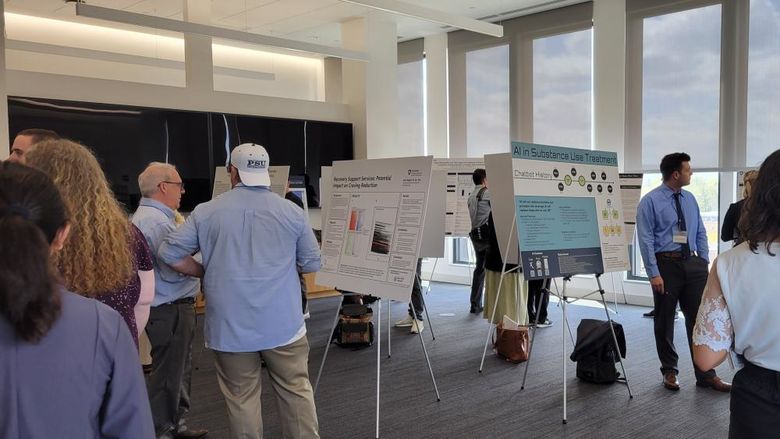HARRISBURG, Pa. — Interactive gaming, or online gambling, became legal in Pennsylvania in 2017. In the first assessment of how this policy change is impacting Pennsylvanians, a recently released report by Penn State researchers and the Department of Drug and Alcohol Programs (DDAP) found that approximately 1 in 10 Pennsylvanians engage in interactive gaming.
The Pennsylvania statute legalizing Interactive gaming, also referred to as online gambling or iGaming, stipulates that DDAP must complete an annual assessment in the Commonwealth. DDAP partnered with a team of Penn State researchers and helped complete the assessment. The report will assist DDAP in fulfilling its mission to assess and address how gambling behaviors impact compulsive and problem gambling within the commonwealth.
The findings of this report were generated from a survey of more than 1,100 individuals across Pennsylvania throughout 2020-21 and indicate:
-
Approximately 1 in 10 Pennsylvanians engage in interactive gaming.
-
Men are more likely than women to partake in online gambling.
-
The most popular interactive gaming is sports betting, and nearly half of all who participate in interactive gaming are engaged in sports betting.
-
Individuals spend almost 6 hours per week engaging in interactive gaming.
-
Nearly half of all those who engage in interactive gaming exhibit at least one problem gambling behavior.
“Penn State and the Criminal Justice Research Center is enthusiastic about this partnership with DDAP and the Pennsylvania Gaming Control Board (PCCB),” said Glenn Sterner, lead researcher on the assessment, assistant professor of criminal justice, and Social Science Research Institute co-funded faculty member.
Additionally, the assessment revealed key insights into the demographics of Pennsylvanians engaging in interactive gaming, according to the researchers. Overall, white, middle-aged men who live in metropolitan areas are more likely to participate in some form of online gaming. They spend about six hours in a typical week engaged in online gaming, and spend $219 per week gambling on average. The most popular type of gaming is sports betting followed by table games like roulette, baccarat and blackjack, followed by fantasy sports betting.
However, problem gambling remains a concern for this population because of the private nature of the location; it may be more difficult to identify a need for intervention. Only 2% of those engaged in interactive gaming have ever contacted 1-800-GAMBLER, Pennsylvania’s helpline for compulsive and problem gambling. Almost 30% of individuals indicated that they attempted to cut down, control or stop gambling in the last year, while almost 23% gambled longer with more money or more frequently than intended in the last 12 months. With this information, the team in partnership with DDAP will be able to better monitor problem gaming behaviors among this population as the commonwealth continues to better understand the implications of legalizing interactive gaming.
“We believe that by collecting this information on a yearly basis, we will be able to obtain a more accurate picture of the impact of this policy change on Pennsylvania communities. If intervention is necessary, this evaluation will aid in the development of a data-driven response,” Sterner noted.
For more information about gambling, including compulsive and problem gambling, WPSU released a roundtable segment featuring Sterner, Amy Hubbard from DDAP, and Eric Pearson from Copper Star Gaming.
Other researchers on the project include Mikael Ahlgren, assistant teaching professor of hospitality management and director of gaming initiatives; Miranda Kaye, associate research professor and director of the Social Science Research Institute’s Survey Research Center; and Raeven Chandler, assistant research professor in rural sociology and director of the Pennsylvania Population Network. In addition, this assessment was supported by several other key faculty, researchers and staff, including Joshua Rosenberger, Diana Crom, Madison Miller and Dennis Dozier.





